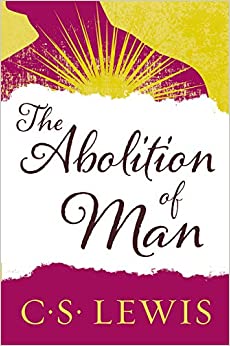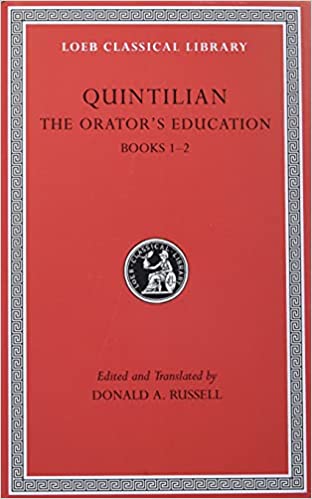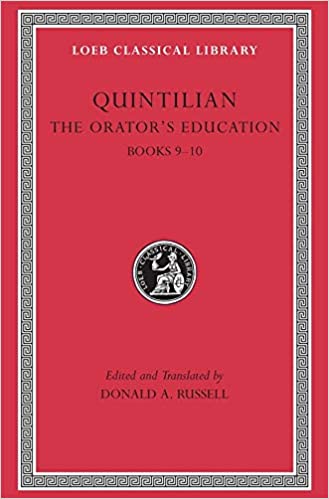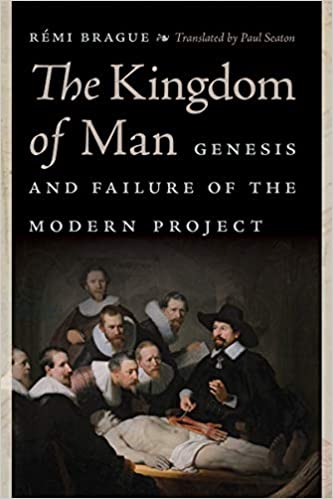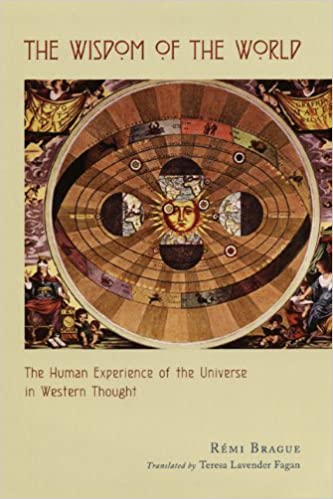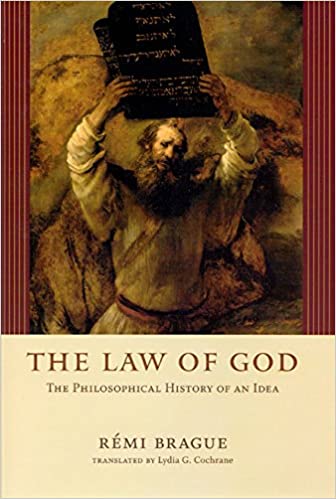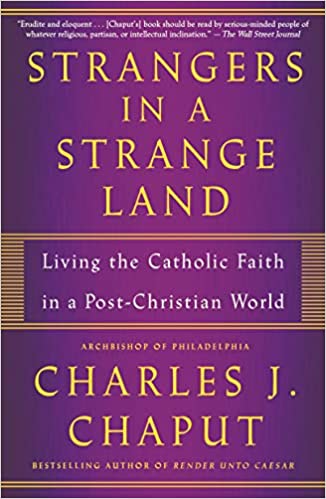#79 Scholé Everyday
The Abolition of Man
From Amazon: "In the classic The Abolition of Man, C.S. Lewis, the most important Christian writer of the 20th century, sets out to persuade his audience of the importance and relevance of universal values such as courage and honor in contemporary society. Both astonishing and prophetic, The Abolition of Man is one of the most debated of Lewis's extraordinary works. National Review chose it as number seven on their 100 Best Nonfiction Books of the Twentieth Century."
More info →Quintilian: The Orator’s Education, Volume 1, Books 1-2
Quintilian, born in Spain about 35 CE, became a widely known and highly successful teacher of rhetoric in Rome. The Orator's Education (Institutio Oratoria), a comprehensive training program in twelve books, draws on his own rich experience. It is a work of enduring importance, not only for its insights on oratory, but for the picture it paints of education and social attitudes in the Roman world.
Quintilian offers both general and specific advice. He gives guidelines for proper schooling (beginning with the young boy); analyzes the structure of speeches; recommends devices that will engage listeners and appeal to their emotions; reviews a wide range of Greek and Latin authors of use to the orator; and counsels on memory, delivery, and gestures.
Donald Russell's new five-volume Loeb Classical Library edition of The Orator's Education, which replaces an eighty-year-old translation by H. E. Butler, provides a text and facing translation fully up to date in light of current scholarship and well tuned to today's taste. Russell also provides unusually rich explanatory notes, which enable full appreciation of this central work in the history of rhetoric.
More info →Quintilian: The Orator’s Education, Volume IV, Books 9-10
Quintilian, born in Spain about 35 CE, became a widely known and highly successful teacher of rhetoric in Rome. The Orator's Education (Institutio Oratoria), a comprehensive training program in twelve books, draws on his own rich experience. It is a work of enduring importance, not only for its insights on oratory, but for the picture it paints of education and social attitudes in the Roman world.
Quintilian offers both general and specific advice. He gives guidelines for proper schooling (beginning with the young boy); analyzes the structure of speeches; recommends devices that will engage listeners and appeal to their emotions; reviews a wide range of Greek and Latin authors of use to the orator; and counsels on memory, delivery, and gestures.
Donald Russell's new five-volume Loeb Classical Library edition of The Orator's Education, which replaces an eighty-year-old translation by H. E. Butler, provides a text and facing translation fully up to date in light of current scholarship and well tuned to today's taste. Russell also provides unusually rich explanatory notes, which enable full appreciation of this central work in the history of rhetoric.
More info →The Wisdom of the World: The Human Experience of the Universe in Western Thought
When the ancient Greeks looked up into the heavens, they saw not just sun and moon, stars and planets, but a complete, coherent universe, a model of the Good that could serve as a guide to a better life. How this view of the world came to be, and how we lost it (or turned away from it) on the way to becoming modern, make for a fascinating story, told in a highly accessible manner by Rémi Brague in this wide-ranging cultural history.
Before the Greeks, people thought human action was required to maintain the order of the universe and so conducted rituals and sacrifices to renew and restore it. But beginning with the Hellenic Age, the universe came to be seen as existing quite apart from human action and possessing, therefore, a kind of wisdom that humanity did not. Wearing his remarkable erudition lightly, Brague traces the many ways this universal wisdom has been interpreted over the centuries, from the time of ancient Egypt to the modern era. Socratic and Muslim philosophers, Christian theologians and Jewish Kabbalists all believed that questions about the workings of the world and the meaning of life were closely intertwined and that an understanding of cosmology was crucial to making sense of human ethics. Exploring the fate of this concept in the modern day, Brague shows how modernity stripped the universe of its sacred and philosophical wisdom, transforming it into an ethically indifferent entity that no longer serves as a model for human morality.
Encyclopedic and yet intimate, The Wisdom of the World offers the best sort of history: broad, learned, and completely compelling. Brague opens a window onto systems of thought radically different from our own.
More info →
